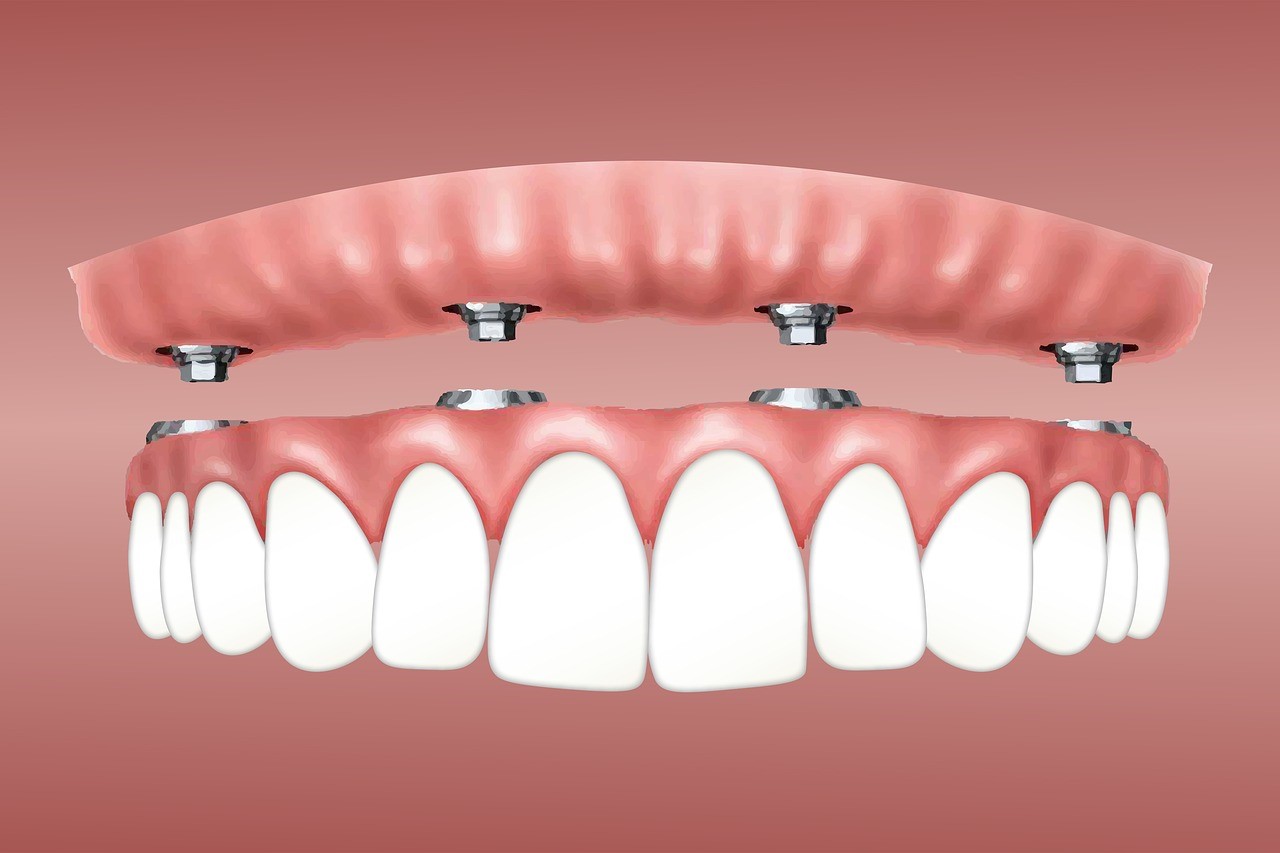Dental implants are a newer technology than dentures, which have been around for many years. People who wear dentures can be afraid of switching to dental implants because they think it means they’ll never eat another piece of steak again. But that’s an unfair comparison. Both devices serve different purposes, so they aren’t necessarily competitors—they each have their own pros and cons. Both devices can help you recover from the loss of teeth, but they do it in different ways. This article will explore the pros and cons of each option of dentures and implants, as well as when each one is most appropriate. Read on to learn more about the benefits and drawbacks of each one, so you can make an informed decision about which is the best option for you.
What are dental implants?
Dental implants are titanium posts that are surgically inserted into the jawbone to act as substitutes for missing teeth. Implants can be used to replace a single tooth, multiple teeth, or all of the teeth in your mouth. Implants look and feel like natural teeth, and they have the same function (chewing) as natural teeth. Implants can last forever with proper care. They can't be removed or knocked out like dentures. The only maintenance they require is occasional brushing and flossing to remove plaque.
Benefits of Dental Implants
Dental implants are the best option if you want a long-term solution to dental problems. Implants will last a lifetime and can come in any color or style you want, unlike dentures which are fixed with adhesives and usually don’t look natural. If you have missing teeth because of an injury or illness and your gums are strong enough to support the implant, it may be possible for you to get them replaced right away. Implants are also a better option for people who want their teeth back as quickly as possible. Dental implants can be placed within 24 hours of losing a tooth, while dentures take around two weeks to get made. If you have dental insurance, it might cover some of the costs of implant surgery. However, dental implants might not be the best option for everyone.
Drawbacks of Dental Implants
Dental implants are a newer technology, so there’s no way to know how long they last or if they will work as well as dentures. The titanium and screw-like materials used in dental implants can cause gum irritation, which can lead to tooth decay. This happens because implants are not fixed in place like dentures, making them more likely to shift around in the mouth and rub against the teeth. Dentures, on the other hand, have been around for many years, meaning we’ve had time to test their effectiveness and learn what works best.
What are dentures?
Dentures are an option for people who have lost their teeth due to a variety of reasons, including tooth decay, gum disease, or accident. Dentures are devices that replace the function of your missing teeth. They come in many forms: artificial teeth that fill in for missing teeth; full dentures that replace all the teeth in your mouth; partial dentures that cover just some spaces and support your natural teeth. Dentures are made from materials like plastic and acrylics, but they’re held in place by suction.
Benefits of Dentures
Dentures are a cost-effective option for those without insurance. They also offer a quick recovery process, which is ideal for people who can’t afford to take the time off of work. Dentures are also good for people with limited mobility in their mouth or jaw, as they can be removed quickly and easily. Dentures are removable and most dentists will provide you with a set of teeth that won’t be attached to your gums. This is one of the benefits of dentures: having the ability to remove them at any time. The downside is that if you have an accident or need oral surgery, you’ll have to have your teeth removed beforehand and won’t be able to use your denture until they heal correctly. Another advantage of dentures is that they’re inexpensive. Many dental insurance plans cover part or all of the costs associated with getting new dentures made or repairing old ones, which means low-income patients will not need to pay out-of-pocket expenses when dealing with this type of dental care.
Drawbacks of Dentures
Dentures can be a great option if you have some limited bone, gum, or missing teeth. But they are not an ideal solution for everyone. Dentures are removable and can be easily misplaced, which is an inconvenience. They also require daily maintenance routines like toothbrushing and flossing to prevent gum disease and other oral issues. You may also experience irritation or soreness because the denture rubs against your lips or cheeks when you eat certain foods. If you wear dentures, it’s important to provide feedback to your dentist about any problems you experience so they can be addressed before they become more serious.
When to get dental implants?
You should get implants if you want something that will last for decades. Dental implants are a more permanent solution to tooth loss than dentures. They’re designed to last for many years and don’t require the wearer to take them out at night or before eating. Dentures, on the other hand, are not a permanent solution and usually need to be replaced every 5-10 years. Unlike dental implants, dentures can only be worn while they’re in place and often need to be taken out before eating or drinking anything hot. Dentures have also been known to slip around in the mouth when they aren’t being worn, which can lead to discomfort and make it difficult to speak properly.
When to get dentures?
Dentures are typically used when someone is missing all of their teeth, or if they have only a few teeth left. Dentures are usually made out of plastic and acrylic materials to make them look like real teeth.
Conclusion
Dental implants and dentures are both used to replace missing teeth, but they offer different benefits. Dental implants are permanent, so they are a good choice for people who want to avoid future problems with loose dentures or other oral health issues. Dentures may be better for people who need a short-term solution or for people who don't have enough bone structure left in their jaw. If you need a long-term solution to your missing tooth problems, dental implants may be the best option for you. They will last many years and don't require any special care or maintenance. But if you need a short-term solution, dentures are a great option. You can change them as often as you need, and they're easy to remove for eating.
Reference:
1-A review of dental implants and infection
Available online 28 March 2009.
https://doi.org/10.1016/j.jhin.2009.02.010
2-Tooth Decay Is the Most Prevalent Disease
2016 Oct; 33(10): 31–33.
https://www.ncbi.nlm.nih.gov/pmc/articles/PMC6373711/
3-Diabetes and gum disease: The diabolic duo
Available online 13 October 2014.
https://doi.org/10.1016/j.dsx.2014.09.022





![Top 5 Best Ways to Create Your Own Cartoon Character [For Non-illustrators] Top 5 Best Ways to Create Your Own Cartoon Character [For Non-illustrators]](https://www.chattycathy.blog/uploads/img/632d545cdf266.jpg)
